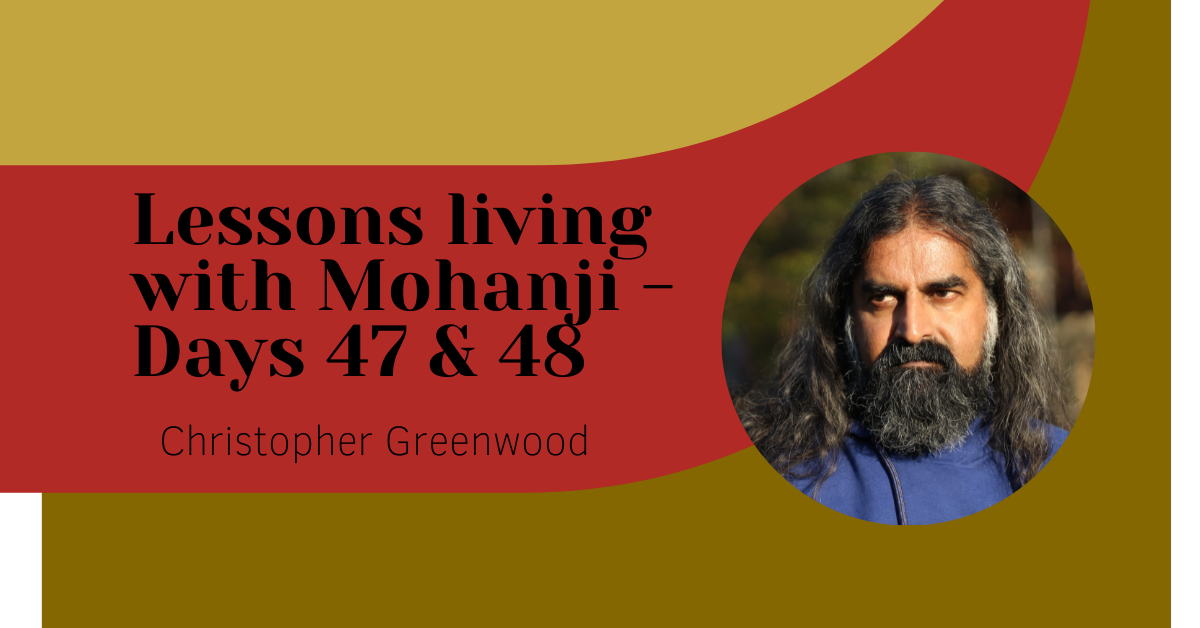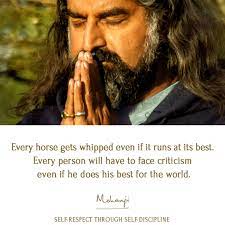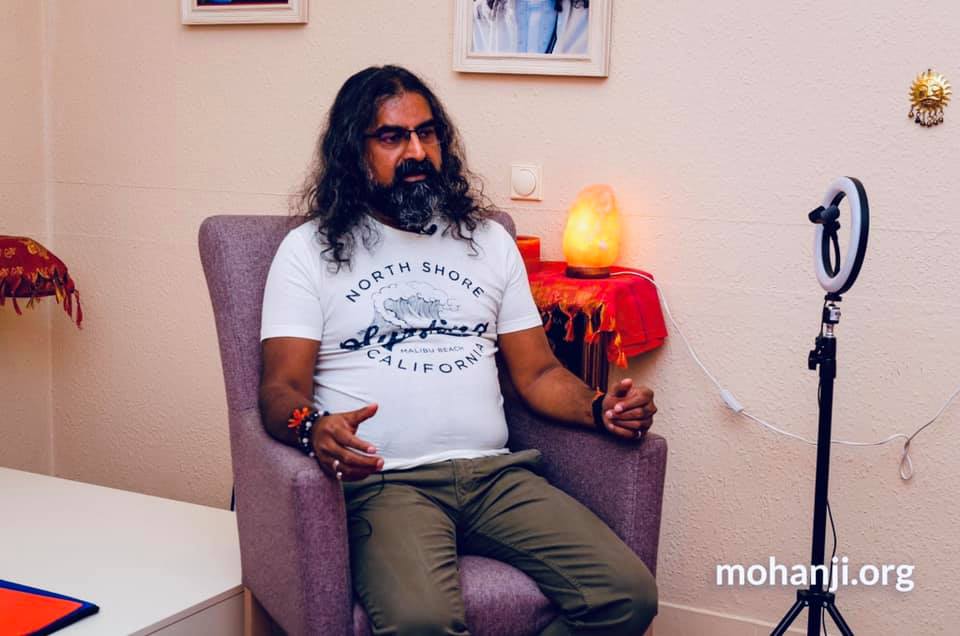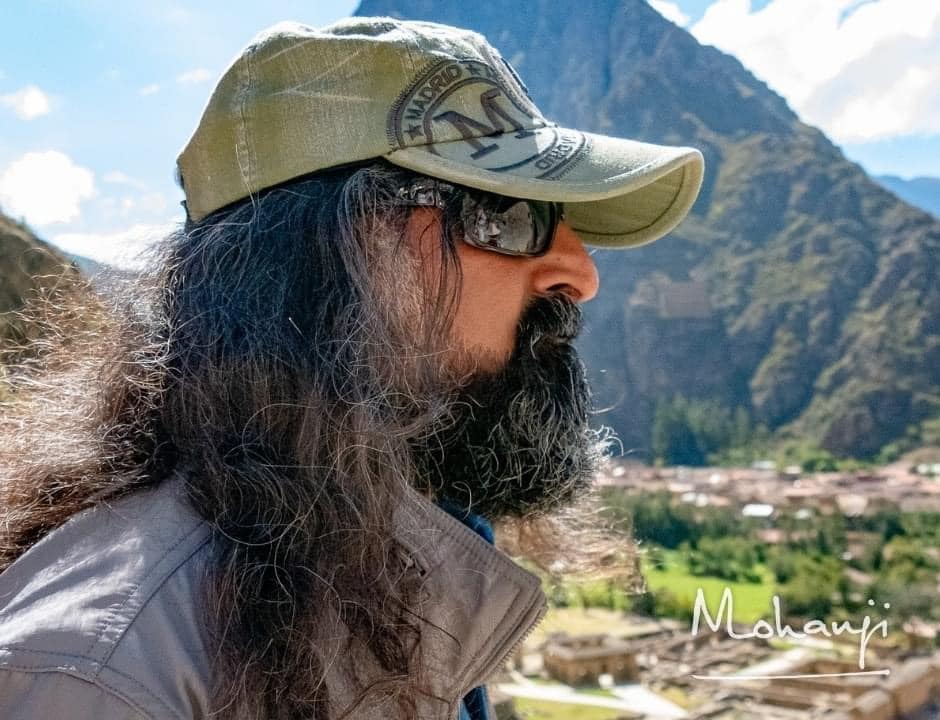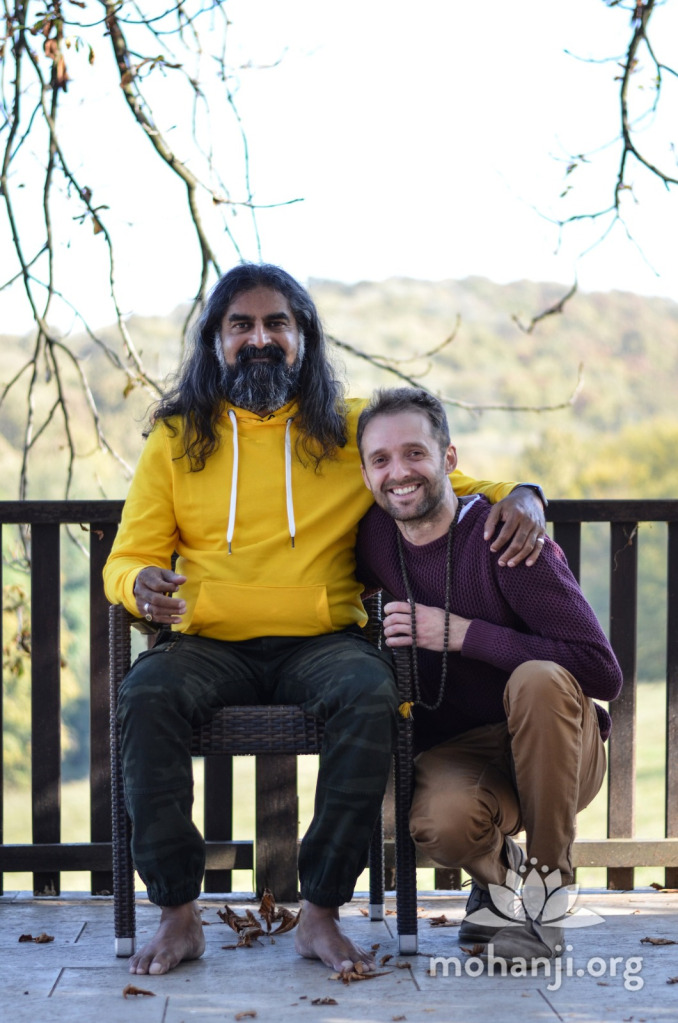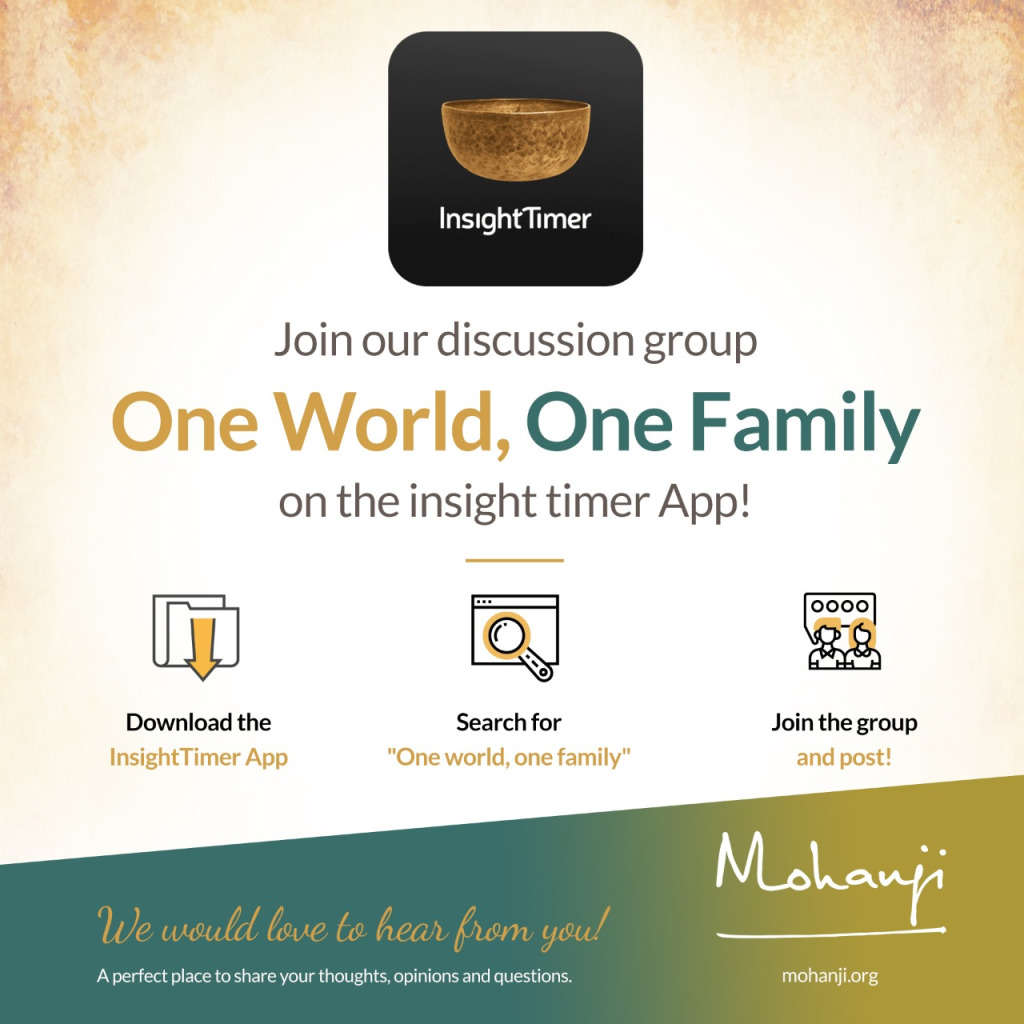By Christopher Greenwood
Day 47 Lesson – Handling our critics
Good morning, everybody!
It’s unusually foggy and cold here today and very quiet. Usually, the sun is out at this hour, with the birds singing, but today it’s very still.
During the morning conversations with Mohanji, we discuss some situations that have occurred during the previous day, something he has to handle; these situations and his responses give priceless learning.
Today, I share a lesson from a discussion I was having with Mohanji yesterday morning about criticism. He was asking how we should handle our critics. In yesterday’s voice recording, I spoke about the obstacles that one may face in life and our activities; critics are one of those; hence we need to understand our approach.
When Mohanji asked me, “How should we handle critics? How do you handle critics?” I replied, “With an openness because they have a point of view.” We spoke a little more, and he built on this, which gave me a much deeper understanding and dimension and appreciation for critics.
Mohanji simply said, “If there are no critics, there is no progress.” Sometimes, a habit can develop within groups of people, organizations, where people constantly praise one another, without much real critical thinking of what the work might be or what the activity might be. It becomes habitual. Even if someone is displaying some high level of stupidity, people can still praise them; what happens in those situations is that people stagnate; there’s no progress.
When criticism happens, it allows us to look from a different perspective, or it may be a very silly angle, or it could be from some prejudice and opinion. Criticism always gives an opportunity to stop and see things differently, re-understand, redefine, or at least re-confirm. So it’s useful.
Mohanji said that criticism should never really be discarded, though there’ll be some people who are criticizing out of anger or in disagreement, and that’s okay. We don’t need to consider that as much as others, as we know where it’s coming from.
There may be people who are disagreeable with how we do things or activities; that’s okay also because you don’t always have to take criticism. Whereas some people are not doing it out of those reasons, they simply have a different point of view, which can be useful. Recently, one of my team members in the Invest in Awareness team took the time to tell me what they thought could be done differently, to help the team, to help them understand certain tasks; they were really good suggestions, So I’ve taken them on board myself, in my own way of working.
Mohanji, in the discussion, was actually talking about how Mila, his daughter, is probably one of his number one critics. When she critiques him, it’s good advice most of the time. One time, she told him, “Papa, when you speak on the camera, you should smile. Remember, people are watching you from the other side, and you don’t want to look too serious or terrorizing.” Though it was a criticism, I found it very valid and nice to hear.
I shared this today as it could prompt you to reflect on your approach to critics. What do we do with our critics? Do we kill the critic? Do we consider what they say? Many times, criticism is probably just somebody’s opinion, which may or may not have any validity. So then, what is a valid criticism? It is something that has practical use in our real life and activity.
Mohanji does this as well. He often has people who come to him to give either some critique or advice. If he thinks it’s good and usable, he takes it and puts it into action. He says to people as well, “This is my idea; this is how I think we can do it. But if there’s a better way of doing it, then I’m happy to take that as a discussion, and we’ll implement it.” Valid criticism is a view or an opinion, which is usable, helpful. Anything which is not beneficial should be discarded.
I hope you have a great day ahead. And if you meet a critic today, maybe it’s an opportunity to reflect and rethink. Speak to you soon.
Day 48 Lesson – Power of Kindness
Good morning, everybody!
I’ve spoken in previous messages that I have to be alert and aware with Mohanji because he flows as per the need of the day and the time. Sometimes he’ll spontaneously share some information or great insight. You have to be ready to capture this because once it’s gone, it’s gone. There’s not really much coming back to that conversation. It depends on who he is speaking to. I’ve seen this when he’s in conversation and speaking with Mohanji after that determines his state.
Mohanji’s like a mirror to the people and the energies that he’s handling. During Q&A sessions, he connects to people attending, and he responds accordingly, naturally, and spontaneously.
When he’s speaking about certain states in Q&A sessions, he actually becomes that. He starts to feel it, which was clear recently in a Q&A session where he spoke about the nature of the soul and the state of silence, and you could see him change as he connected to this. Later, he told me that it’s very difficult to come back from that state and speak because he’s becoming that when he’s talking about something. He is very connected to who and what he’s talking about.
Mohanji keeps very up-to-date on current affairs and news. Sometimes certain events or situations will reach him; normally, it happens because he has to act on them for some reason. It comes to him, he doesn’t go searching for it, but something will present itself to him, and he acts on it naturally, spontaneously. This sometimes becomes part of our morning conversation; there’ll be something to act upon. When I witness it, it’s like he’s constantly on the pulse of the consciousness of people generally around and within the organization, across the platforms.
Yesterday, he spoke to me about kindness, and this was prompted by a story that had come to him. He said it’s important at this time to remember when we’re handling people in our lives that we should keep kindness in mind. He has also recorded a podcast (An Attitude of Kindness) of this which will be available soon as well, with more information. It is very interesting how we’re doing podcasts because the thought will come to him, and if we’re having a conversation, straight away, he’ll say, “Okay, let’s record a podcast.” There’s no preparation; the inspiration just comes, and then we record it as it is.
Today, kindness is what we were speaking about. This was about a situation which had happened where a woman had been trying to call a guy; it wasn’t a romantic interest. It was purely friendship, and she wanted to speak to him, but he was genuinely busy. So each time she tried to connect, he would say, “I am busy, I can’t make it. I’ll call you back soon.” What he didn’t know, though, was that this lady was on the verge of making a decision. So three times the lady tried to call to connect with him, she decided and took her own life after the third time. The man was left completely devastated once he heard this news.
Mohanji shared this story because he said that in these times especially, we should remember kindness. If we are speaking with people, interacting with people, we don’t know their situation. On the outside, they may appear great, but inside, they could be like a tinderbox, ready to catch fire any moment. If we are kind, give people the time, if we are receptive, compassionate – we can automatically bring people to a balance; it will reduce people’s anxiety straight away.
Knowing how Mohanji handles people and how he speaks with people, he really cares for everyone who connects with him, and he treats them with the utmost kindness and respect. I’ve witnessed him defuse many situations simply by speaking with people and being kind, being there for people. He stands by people no matter what their situation, and he gives his time. If he has to have a conversation or someone contacts him, he’ll spend the time with them.
This incident was a reminder for me because, naturally, my language style and communication are quite abrupt. I come from a business background, quite a rough and harsh business background where communication was kept minimal. It’s to the point and matter of fact because I was working on projects, which were fast-paced, objective-based; we just had to get things done – that type of attitude. It was generally accepted that we didn’t spend much time communicating or speaking about what was going on for people. There was a focus on the activity. What was needed to be said was said, and nothing more.
I know now that this can be taken in some different ways, especially in written form; this was also Mohanji’s message to me as a lesson. I think it’s a good one to share because when people contact us, whether it’s via message or call, we don’t know the state the person is in. With all the situations that are happening, there could be anxiety, a physical ailment, or insecurity, or just the need to speak with someone. When we speak with people, especially in these times, it’s a reminder that we can be kind, receptive and compassionate, because it will automatically bring people to a balance.
Mohanji said that kindness is more powerful than meditation; it is more powerful than practices and more powerful than scriptures. Because if someone reaches us, and we’re kind, it calms them straight away.
As turbulent, challenging, and chaotic times loom ahead, we should consider kindness the most important attitude as we’re part of Mohanji’s varied platforms. The platforms deal with all aspects of society, especially with all the service activities like Act4Hunger, Ammucare, ACT, assistance from helpdesk, etc. and Mai-Tri practitioners. When people have genuine trouble in their life, just having that kindness can also be part of the healing.
This was a good reminder for me today – when people are looking to reach us, to being more available, being kind, giving them importance, and demonstrating the values that we stand for and that we’re looking to also demonstrate to the world.
I hope you have a great day ahead, and speak to you very soon.
|| JAI BRAHMARISHI MOHANJI||
Edited & Published by – Testimonials Team, 5th August 2021
Disclaimer:
The views, opinions, and positions expressed by the authors and those providing comments on these blogs are theirs alone and do not necessarily reflect the views, opinions or positions of Mohanji, Mohanji Foundation, it’s members, employees or any other individual or entity associated with Mohanji or Mohanji Foundation. We make no representations as to accuracy, completeness, timeliness, suitability or validity of any information presented by individual authors and/or commenters on our blogs and will not be liable for any errors, omissions, or delays in this information or any losses, injuries or damages arising from its display or use.
We reserve the right to delete, edit, or alter in any manner we see fit blog entries or comments that we, in our sole discretion, deem to be obscene, offensive, defamatory, threatening, in violation of trademark, copyright or other laws, of an express commercial nature, or otherwise unacceptable.
— Mohanji Testimonials Team

